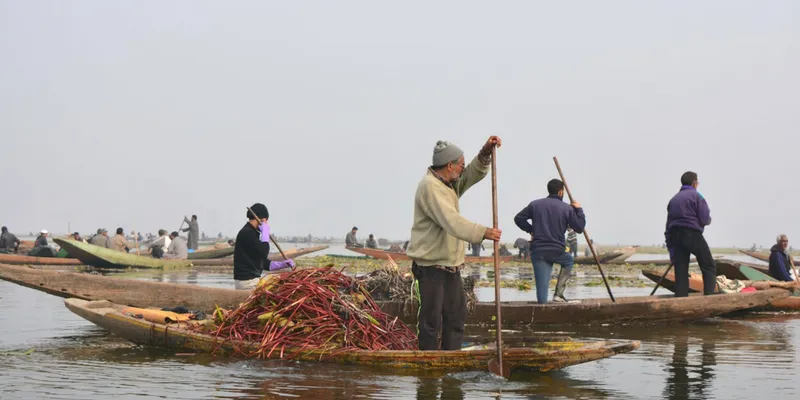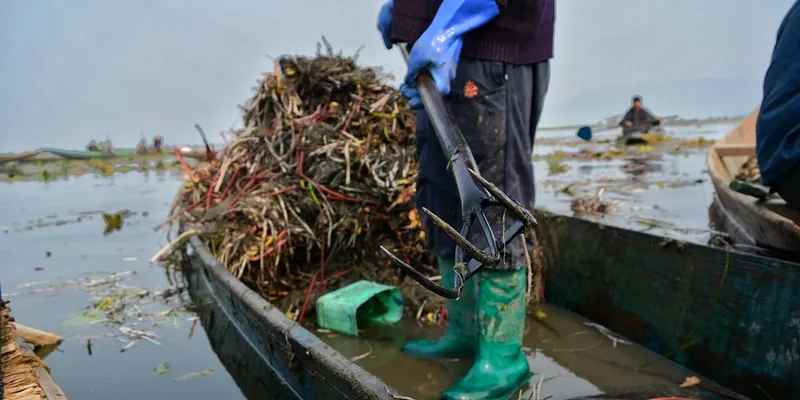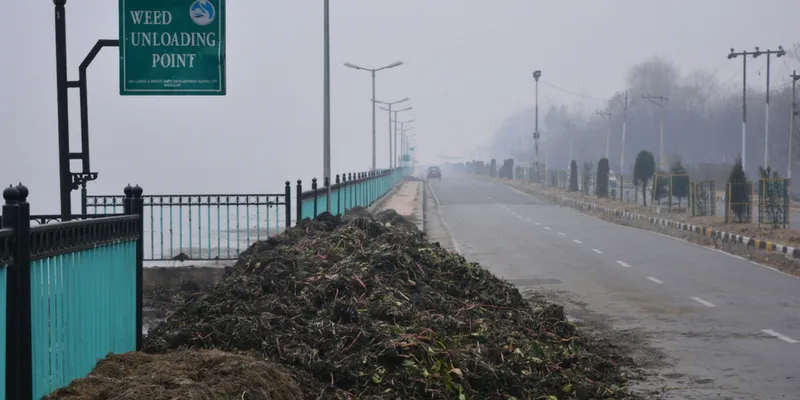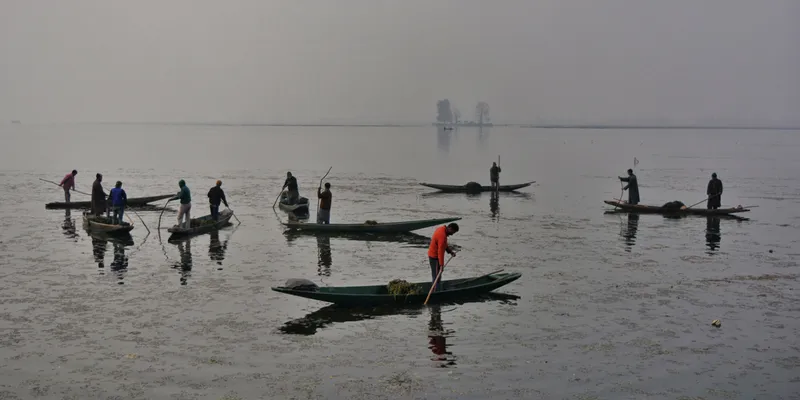1,300 shikarawallas, one misson: Cleaning up the Jewel of Kashmir
The Dal Lake is dying a slow death with each passing day - it has shrunk to 24 sq km in the last two decades from 31 sq km. But locals have taken the Dal cleanup into their own hands.

On a cold winter morning in Kashmir, when the temperature would dip as low as zero degrees Celsius, Mohammad Shafi, wearing his long plastic boots, would take out his shikara, some equipment and head towards Dal Lake. He wasn’t the only one. Hundreds of shikarawallas would assemble and join Shafi in cleaning the lake, Kashmir’s pride.
Muzammil Khurshid Ali, Chairman of Green Kashmir, an NGO working to restore Dal Lake, says the lake’s problems began primarily in the 1980s when encroachments started coming up around the area. With growing tourist influx, hotels and houseboats came up in big numbers. Waste from these was disposed of in the lake as was the trend back then.
The lake, which once covered an area of 31 square kilometres, has shrunk to 24 square kilometres in the last two decades.
To restore Dal’s glory, Jammu and Kashmir Lakes and Waterways Development Authority (LAWDA) procured several machines from Switzerland, Finland and United States in 2010 to speed up the cleaning process. But not much could be done with a handful of machines as they could not cover the whole area.

It took seven years for authorities to realise that these machines have failed. In September 2017, they started the traditional way of cleaning the Dal by hiring around 600 local skilled workers, Shafi says.
The pollution in Dal includes lily pads, algae and weed, which are extracted by these workers with traditional methods. They pile the waste in their shikaras and put it at specified places along the banks of Dal Lake. From these de-weeding points, the waste is finally loaded into a truck and transported to the dumping area.
Shafi says the traditional method is more successful as it cuts the weed off from the roots while the machine would only cut the upper part, which is “eventually useless as it grows again”.
Vice Chairman, LAWDA, Dr Hafeez Masoodi expressed grief that there was no organised movement for this in the past. For the first time a large-scale cleaning process has been initiated with around 1,300 boatmen hired by LAWDA.

More than 10 lakh cubic metres of weeds have been removed from the lake, rendering a large area of water weed-free in September 2017.
The wetland is divided by causeways into four basins: Gagribal, Lokut Dal, Bod Dal and Nagin. The cleaning process is going on in full swing at all four basins.
For Dal Lake, workers are spread from Batil Kadal and Nishat to Boulevard Road, covering almost the entire lake.
This is also the first time that we have extended the Dal cleaning process beyond autumn. If we continue at the same pace, the lake will be clean in 6 months, Dr Masoodi said.
Security is a concern
But workers complain that nothing has been done for their safety or security. There have been a few incidents where workers were either injured or lost their life while performing their job.

Shabir Ahmad, another worker, says the boatmen own everything - from the shikara to all the equipment used during the cleaning process.
We are not asking them to give us rent for our boat or equipment but we request authorities to at least provide us a proper uniform, gloves and a pair of waterproof boots, he said.
Dr Masoodi said that as far as compensation is concerned, they don’t have any formal agreement with workers so cannot compensate them.
When it comes to safety of the workers, we are extending the cleanup beyond autumn for the first time. If need be, we will suspend the work if we feel that harsh winter conditions are creating a hindrance for the workers. We will do everything possible for the safety of the workers, he said.
Here’s hoping that Srinagar’s jewel gets its shine back soon.







